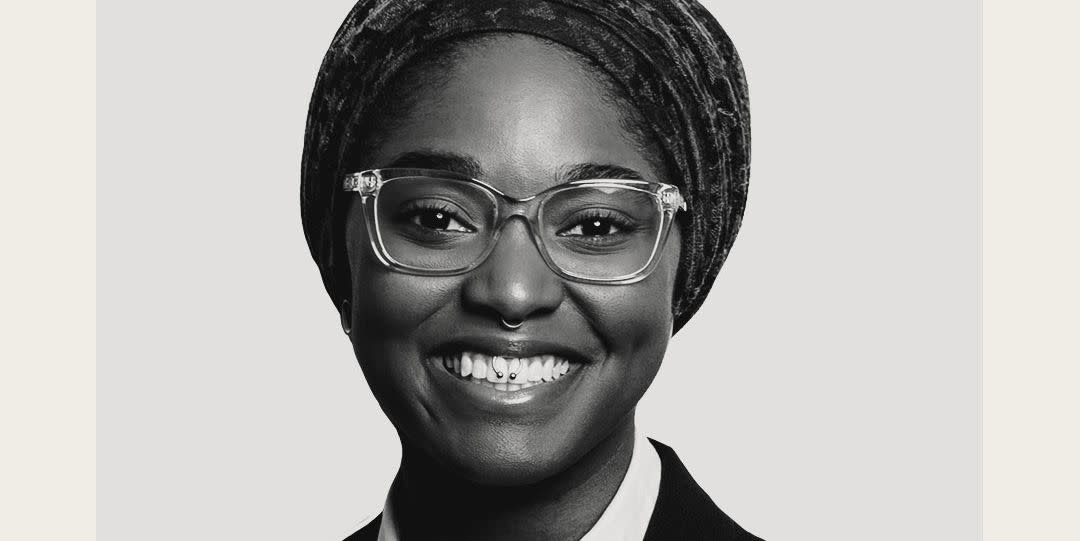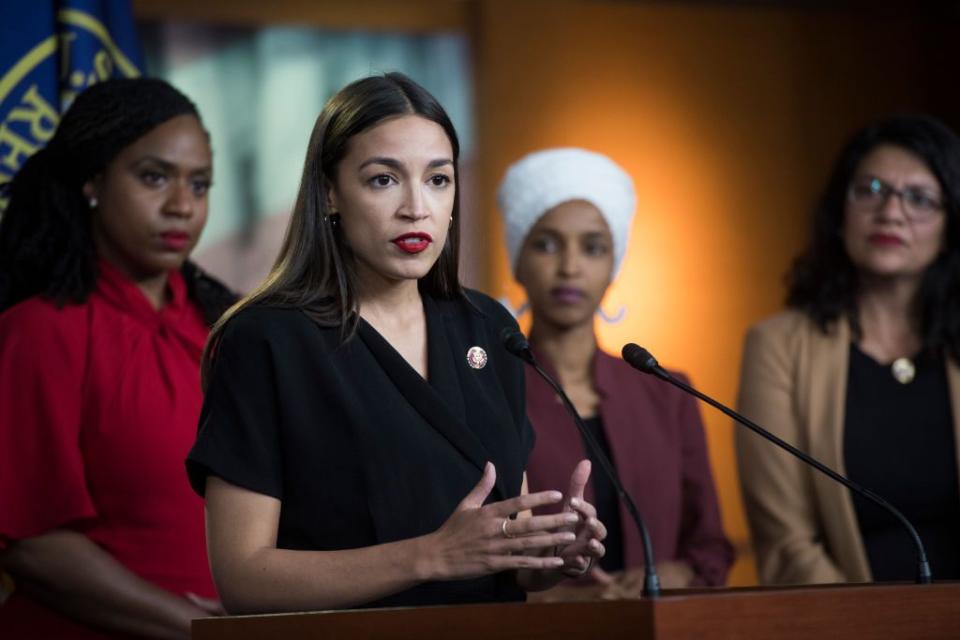Mauree Turner on the Challenges and 'Humbling' Moments of Being Oklahoma's First Muslim Lawmaker

- Oops!Something went wrong.Please try again later.
Right off the bat, Mauree Turner needs to clarify something. "My name is Mauree Turner," they said on Friday during a round of 20 Questions on ELLE's Instagram Live. "I am the newly elected representative for Oklahoma's House District 88. I feel the need to emphasize Oklahoma because a lot of people still think that I am in Congress."
The confusion most likely stems from this past November when Turner made history—and headlines—as the first practicing Muslim elected to the Oklahoma state legislature and the nation's first non-binary state legislator. As an Oklahoma community organizer, Turner has used their platform to advocate for issues such as criminal justice reform, LGTBQ+ rights, and public education. "[House District 88 is] full of community organizers and activists that really care and really give back and are continuously writing a playbook on what's next and then living it," they said. "I think that's, quite honestly, how I got elected."
Now, in honor of Muslim Women and Femmes' Day on March 27, Turner went live with ELLE to answer questions about their win, representation in politics, and getting involved in your community, wherever you may be. Find an abridged version of the Q&A below, or watch the full video here:
What does Muslim Women and Femmes’ Day mean to you?
[In 2017] Amani from Muslim Girl designated March 27 as Muslim Women's Day. I think that's really remarkable, and in Women's History Month, it's really remarkable to make sure that we are paying homage to everybody and how we got here. One of the things we talked about was adding in the 'femmes' part, because I am not a woman. I am a non-binary femme, and I hate taking up space that is not for me, specifically within marginalized and disenfranchised communities. For me, it's really powerful to see folks like Amani, Blair Imani, Samra Habib, being able to look out and see myself and see people like me. Marginalized and disenfranchised people wouldn't be here if there weren't women at every corner really paving a way for us and making sure that we were being inclusive in our work. That's what that means to me.
What's been the most surprising part about gaining so much attention around your election win?
I'm very introverted. So to go from small-town Oklahoma to folks across the nation, and across the world, reaching out to express how they felt they had representation they hadn't had before is really remarkable and humbling.
It was very jarring to be in the limelight. I feel like, more often than not, it doesn't matter how good or how bad you are—the bigger you are, the harder you fall. The thing I hate the most is knowing that I have more space now to let people down. It makes me critically think even more about the things I do in my politics and how I conduct myself.
What's the most challenging part about becoming Oklahoma's first Muslim lawmaker?
I don't have the political capital to be able to have a bad day or to be able to say something or do something off-kilter and have people show me grace. I come into things with an open mind and an open heart, ready to work with anybody. But I am not met with that same open-heartedness. There are people, to this day, that still refuse to look at me, refuse to talk to me in this building. That was something that I had anticipated, but I didn't think it would feel how it does.
If you could only have three things with you in your office, what would they be?
An unlimited supply of coffee, already made. My Marsha P. Johnson poster. It really keeps me humbled and helps me remember why I do this work every day. The quote on it says, "No pride for some of us without liberation for all of us." That is how we should be doing our work here. And this sticker. [Holds up a rainbow sticker in the shape of Oklahoma.] I like to keep it right here in front of me.
If you had to quarantine with one other politician, who would it be, and why?
I think the obvious answer is anybody in the Squad. Attica Scott would be absolutely wonderful to quarantine with.

What's your advice for people who don't see themselves represented in their local or federal government and want to get into politics?
I can't stress enough how important representation is, whether that's you already having someone or you being that for someone else. I was continuously at a place where I had to be my own representation, so being in a place like this is really humbling. I'm here to tell you: Do not let patriarchy or white supremacy stop you from believing in your power, from walking in your power. There are going to be people who show up for you, people you never expected.
What's one book everyone should read during the pandemic?
I really like Samra Habib's We Have Always Been Here. I recommend that for young, queer Muslims. And Unapologetic by Charlene Carruthers.
What's your best piece of advice for working with people you don't agree with?
[Having] an open heart and an open mind. The thing I try to stress is that magic happens when we show up. The power of relational organizing is really important, and in meeting people where they are, even in language. A lot of people don't don't understand the language of the oppressed because they have only spoken the language of the oppressor. [Show up] with grace and dignity, but also realizing what you can and can't take. You do not have to subject yourself to trauma just because somebody else needs to learn something.
What's the No. 1 thing you'd recommend to people who want to get involved in their communities but aren't sure where to start?
Doing that inner work to figure out what you really care about, where your shared lived experience really propels you to be, [and] understanding how intersectionality really works with that. It's not the fact that you hold a lot of identities, but the fact that oppression happens and compounds on you when you hold a lot of marginalized identities. Figuring out what you love to do. There's a place for everybody in the movement, and it's not out front for everybody. Some people like to be behind the scenes.
This interview has been lightly edited and condensed. Listen to it all here.
You Might Also Like

